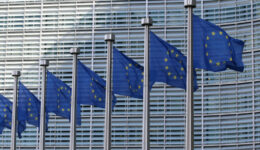X blocks European Commission ads after €120m penalty
X has reportedly terminated the European Commission’s advertising account days after receiving a €120 million fine under the EU’s Digital Services Act (DSA).

X has reportedly terminated the European Commission’s advertising account days after receiving a €120 million fine under the EU’s Digital Services Act (DSA).

FRA warns that AI Act implementation is undermined by weak rights impact tools, unclear high-risk scope and ineffective oversight, urging broader safeguards for fundamental rights.

The Commission’s new AI Act whistleblower tool offers a secure, confidential EU-wide channel to report suspected AI Act breaches directly to the EU AI Office.

EU fines X €120m under the DSA for deceptive blue checkmarks, inadequate ad transparency, and unlawful restrictions on researcher access to platform data.

The EU’s 2030 Consumer Agenda outlines new digital fairness, enforcement, cross‑border, and sustainability initiatives that will significantly tighten consumer protection in digital markets.

Coimisiún na Meán is investigating TikTok and LinkedIn for possible DSA breaches over opaque, non-anonymous reporting mechanisms for suspected child sexual abuse material.

Macron accuses the EU of moving too slowly on DSA and DMA probes into US tech firms and warns against US pressure to dilute enforcement in exchange for trade concessions.

UOKiK probes whether Apple’s ATT privacy framework unlawfully favors its own advertising services over rival app publishers, potentially abusing its dominant position in the iOS ecosystem.

Lutnick ties US tech investment and a steel and aluminum deal to EU softening DSA and DMA enforcement, while Brussels doubles down on its digital rulebook and simplification agenda.

European Parliament urges an EU-wide under‑16 default ban on social media, targeting addictive design and dark patterns, while pressing to strengthen child protection beyond the DSA.